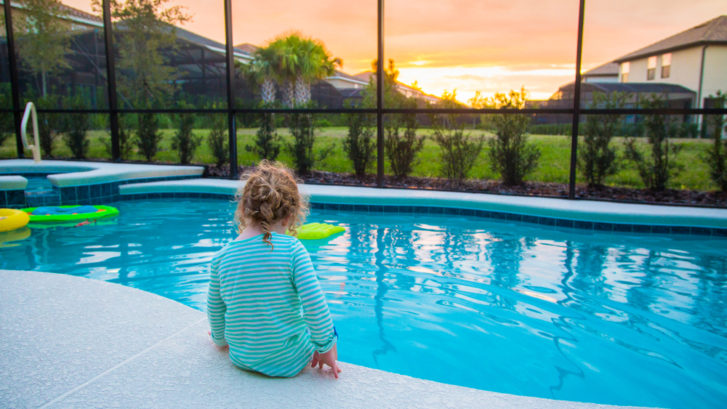Summer Water Safety Tips: Boat, Pool, Beach, Garden Hose
One of the many pleasures of summer is spending time on, in, or near the water. But as enjoyable as a refreshing swim or boating trip can be, water needs to be respected. Our concierge family practice doctors would like to review some safety tips to help keep you and your family safe.
General
- It’s natural to love the water, but you should be cognizant of its power. Always swim with a lifeguard present, and never swim alone.
- Be sure you and your children have taken age-appropriate swimming lessons and know how to swim well.
- Never turn your back on a child in the water, even for a moment.
- Avoid alcohol use when in or around water: It impairs balance, coordination, and judgment, as well as swimming skills.
Boat
- According to the U.S. Coast Guard (USCG), 78 percent of boating deaths in 2014 were due to drowning; 84 percent of those victims were not wearing life jackets. Every person (and animal) on a boat should be wearing a USCG-approved life jacket.
- Make sure everyone stays in their seats. Never allow anyone to sit on the gunwales or setbacks or outside protective railings.
- If you notice a sudden temperature drop, choppy water, lightning flashes or an increase in wind speed, get back to port immediately.
- Learn about how to avoid the hazards of carbon monoxide, the odorless, colorless poisonous gas emitted by all combustion engines.
Personal Watercraft (PWC)
- Even though they represent just over five percent of watercraft, PWCs represent over 60 percent of all on-water collisions. Take a boating safety course before using your PWC.
- Know and understand all the operational features of your PWC.
- PWCs require special protective clothing for all operators and passengers. Check your operator’s guide or the manufacturer’s website for specific requirements.
- Securely attach the engine cutoff lanyard (“kill cord”) to your wrist or lifejacket so that in case you fall off, the engine will immediately stop.
- Avoid wake jumping, splashing, or passing closely to any other vessels. Also avoid “buzzing” swimmers, skiers, or divers.
- Obey all posted signs, and avoid driving too close to residential areas or congested waters.
Pool
- Be sure to install child-proof fencing all the way around the pool. Fences should be at least four feet high, with self-closing and self-latching doors that open outward. Consider door alarms for those that open directly into the pool area.
- Also remove any structures that would allow them to circumvent the fence, such as ladders and toys.
- If a child is missing, always check the pool first—seconds count.
- Empty portable pools when not in use because small children can drown in as little as an inch of water.
- Always make sure a responsible adult is watching the children playing in or near the pool area (with no distractions, e.g., smartphones off).
Beach
- Know the signs of a rip current: a channel of churning, choppy water; a line of foam, seaweed, or debris moving out to sea; or a break or gap in the incoming wave pattern. Know how to escape if you’re trapped in one: Swim parallel to the shore until you’re free of the current, then swim back to land.
- Never dive head-first into the water. If the bottom is too shallow, such a dive can cause paralysis or death. Always go into the water feet first until you know the conditions hidden beneath the water.
- Don’t dig holes in the sand, and watch for them when walking along the beach. More people are killed every year by collapsing sand holes than by sharks.
Garden Hose
- What possible harm could come from a garden hose? How about severe burns? This happened two years ago to a Las Vegas toddler whose mother was filling a kiddie pool when her child got too close. He received second-degree burns over 30 percent of his body.
- Water in a garden hose left in the sun can heat up to 130-140 degrees, burning humans and animals. When first turning on a hose, always allow the water to run onto asphalt or concrete for several minutes before aiming it onto anything living, including plants.
Your family doctors at MD 2.0 want you to have a wonderful summer. Just be sure to keep these few safety tips in mind.

